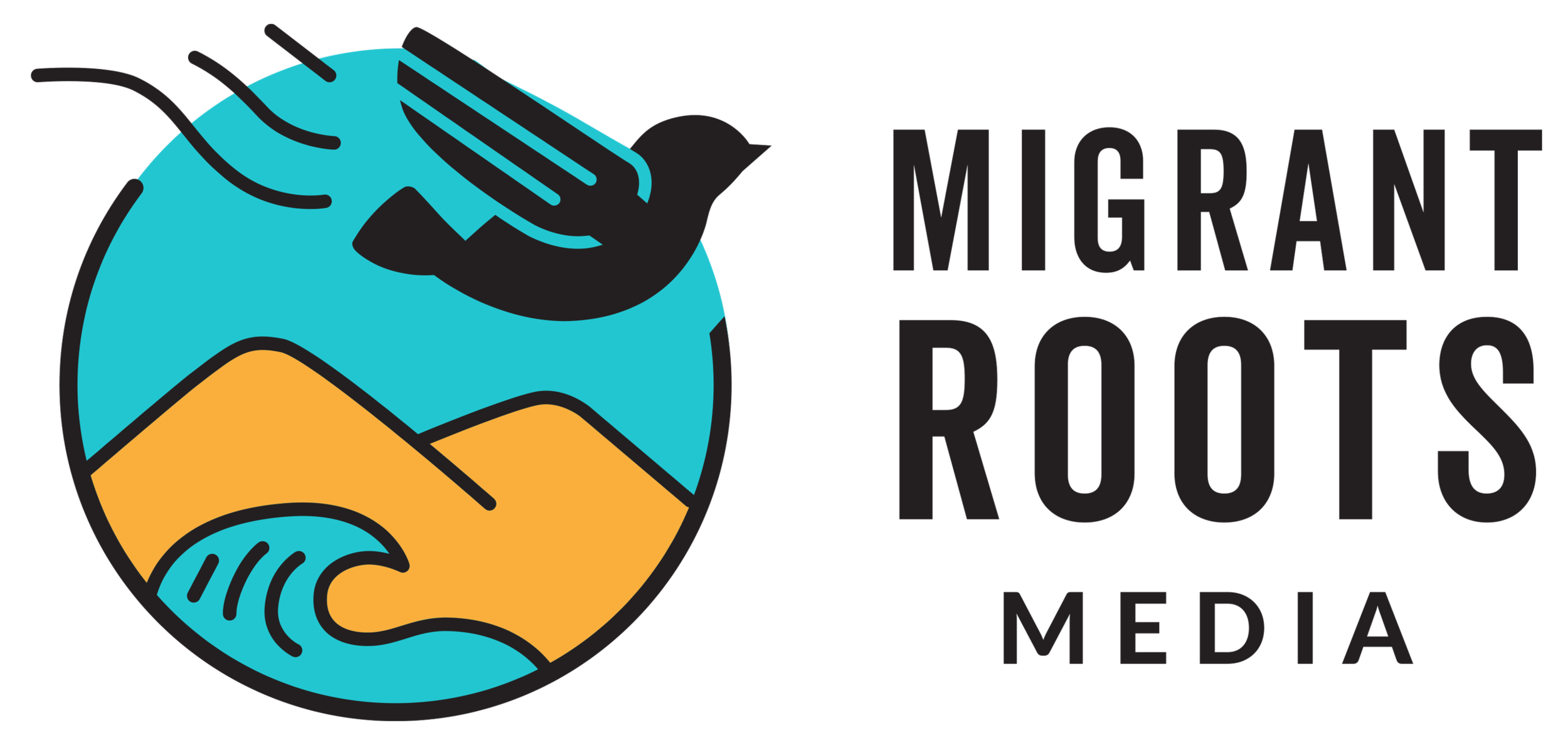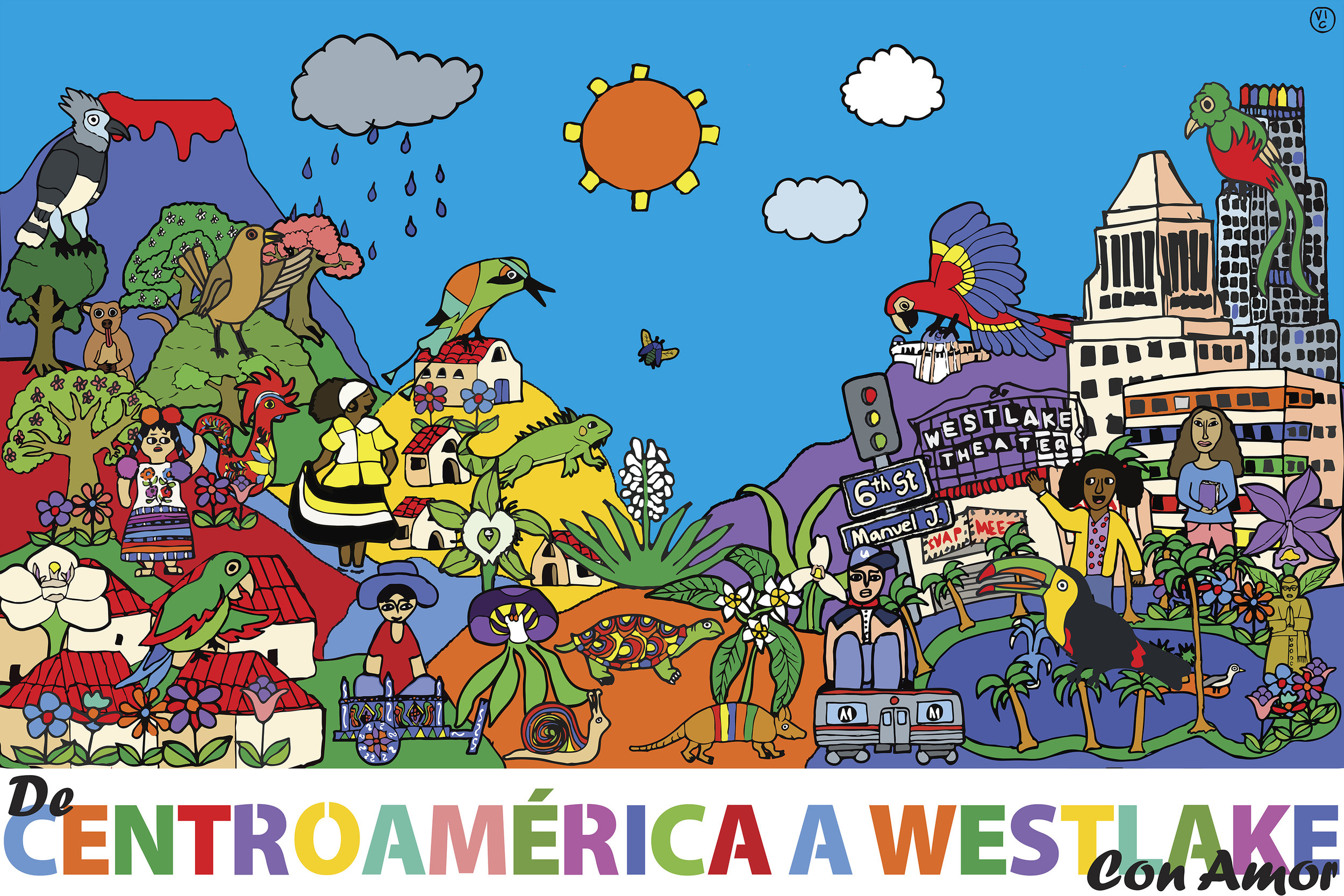From L.A. to Palestine: An Iranian-Mexican Organizer’s Call to Unite Our Immigrant Rights and Anti-War Movements

“We are citizens of the most powerful country on earth – we are also citizens of a country that stands upon the wrong side of every liberation struggle on earth.” — Audre Lorde
Sara at a 2013 protest demanding the shutdown of Adelanto Detention Center. Photos by Manoj Jayagoda
I have lived my entire life under endless war – from witnessing police in riot gear patrolling the streets of Los Angeles like an occupied zone, to seeing the children buried under the rubble of U.S. bombs in Gaza, and now, watching Iran engulfed in the fires of drone strikes. As this transnational violence unfolds, I am reminded that the wrath of the U.S. empire is ruthless in both our local communities and our motherlands. I have learned this through my own lived experience growing up in working-class, immigrant Los Angeles as a daughter of the Iranian and Mexican diasporas. Even as I write this, my father is in Iran, where Israel and the United States have bombed hospitals, water systems, and civilian infrastructure. I am living my worst nightmare in real time: my family’s lives caught in the crosshairs of a war paid for by my own tax dollars.
Although a ceasefire has been proposed, the United States launched airstrikes on three nuclear sites in Iran just a few days ago, an action that could have catastrophic consequences for the entire planet. Our own resources are being diverted to fuel war, while our working-class communities at home suffer.
For me, the struggles from Los Angeles to Iran are not merely theoretical. They are my family’s living memory. As the child of an Iranian immigrant father and a Mexican mother, my life is deeply shaped by histories of both survival and resistance.
On my mother’s side, my ancestors are among the original peoples of North America, having journeyed for generations between what are now known as Sonora in Northern Mexico, Arizona, and California. Even though our ancestors had traveled this land for generations, my grandmother died without ever becoming a U.S. citizen, disenfranchised from the land of her people by the settler colony of the United States. Growing up, I used to cringe at the Mexican-American narrative that “the border crossed us,” since it erased the reality that Mexico as a nation was also imposed upon the original peoples of this land. However, by digging deeper into the history of my ancestors, I have found that their roots are more indigenous to these lands than those of any European settler.
My mother comes from a lineage of migrant farm workers who moved from the citrus groves of the San Gabriel Valley to the apple orchards of Watsonville, California. She recalls the fear of standing on top of a ladder, her arms small enough to pick apples wedged between narrow branches. My mother worked in the fields until age twelve, when the United Farm Workers organized against child labor. Her story is one of deep pain, but also of resilience. She transformed these experiences into a life dedicated to labor and immigrant rights organizing in Los Angeles.
Sara’s uncle preparing kaboodieh on her great uncle’s land in Tabriz, March 2022.
On my father’s side, I come from the Azeri people of Yam, a village on the outskirts of Tabriz. My family has maintained our ancestral lands, which have been in our care for over ten generations. When I was a child and first visited my great-grandparents, they lived in traditional ways in cave dwellings dug into the mountainside.
My grandfather moved to Tabriz and became a political leader and an ally of Dr. Mohammad Mossadegh, the secular leader who nationalized Iran’s oil industry and called for the alignment of the East against imperialism. In 1953, Dr. Mossadegh was overthrown by a U.S.-backed coup, which installed the brutal regime of Shah Mohammad Reza Pahlavi, a puppet king controlled by the United States and the United Kingdom, who was in power until the Iranian Revolution of 1979.
To destabilize Iran during the early years of the revolution, the United States funded the Iraq-Iran War, which led to the deaths of a devastating percentage of men in my father’s generation. Street names across Iran have been changed to honor the names of those fallen soldiers. Since I was a little girl, my father taught me about the devastating impact of U.S. imperialism on his homeland and his generation. While the revolution may not have delivered all that was hoped for, it did establish a sovereign state that no longer bowed to the will of Western empires.
Sara at the UNAM encampments, September 2024.
Today, Iran stands in defense of its sovereignty and as one of Palestine’s strongest allies. Despite the U.S.-imposed economic sanctions, Iran continues to support the Palestinian people. As U.S. Americans, we must not only ideologically support Palestine. We must also speak out when those nations and peoples who are materially aiding the struggle – at great cost to themselves – are under attack.
We must also acknowledge the deep trauma and massive forced displacement caused by U.S.-funded wars in the Middle East. As Israel and the United States continue to bomb Iran, I think of the millions of refugees from Afghanistan and Iraq who have sought refuge in Iran – refugees who have already endured the devastating impacts of U.S. wars in the Middle East. As we stand in defense of immigrant communities in the United States, we must unite our movements to defend refugees fleeing U.S. militarism all over the world.
Sticker available for purchase at @josefinaysucafe in Mexico City — a cafe fundraising for Palestine.
Here, in Los Angeles, we are no strangers to the empire’s grip. We are currently seeing our immigrant neighbors being abducted by the U.S. Immigration and Customs Enforcement (ICE). Our streets are militarized, patrolled, and occupied by the U.S. National Guard and Marines, as if our working-class communities were war zones. Peaceful protesters are met with rubber bullets, tear gas, and arrests. Only a few days ago, labor leader David Huerta was violently arrested and charged with a federal felony for engaging in a nonviolent protest against the ICE raids. This is not public safety. It is the violent repression of dissidence and the criminalization of solidarity.
A dinner table set on Sara’s ancestral land in Yamm, Iran.
A striking example of this is the targeting of pro-Palestine student activists like Mahmoud Khalil, Palestinian himself, and Rümeysa Öztürk who were detained by ICE for leading protests advocating against the genocide of the Palestinian people. Khalil, a Columbia University student, had been labeled a national security threat, denied bond, and separated from his pregnant wife and then newborn child for his campus organizing. These are not isolated incidents. They are part of a broader, disturbing use of immigration enforcement to target and silence pro-Palestine and anti-war activism. We must continue connecting the dots about how these systems of detention, incarceration, and deportation are being used to target anyone the government deems as defiant and unite our movements in this struggle.
From the National Guard and Marines in our streets, to ICE in our schools, to the bombs over Tehran, we are fighting the same enemy. It is our duty to speak because it is in our name, and with our tax dollars, that this system wages a civil war on us here and a war that risks the entire planet abroad. Growing up, I was taught that resistance is not a choice; it is survival.
Sara Roschdi is an Iranian-Mexican organizer committed to linking local struggles with global movements. Raised in a working-class, immigrant union household in Los Angeles, her family’s legacy of resistance shapes her dedication to social justice and cross-border solidarity. She has experience working in labor unions, worker centers, and Latin American solidarity networks. Through this work, she seeks to build people power and combat empire.










